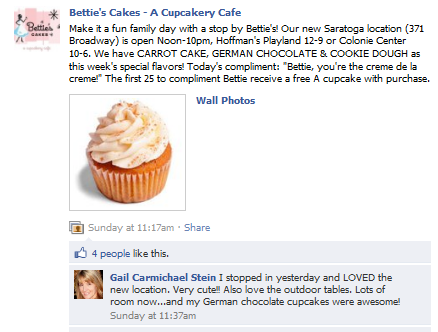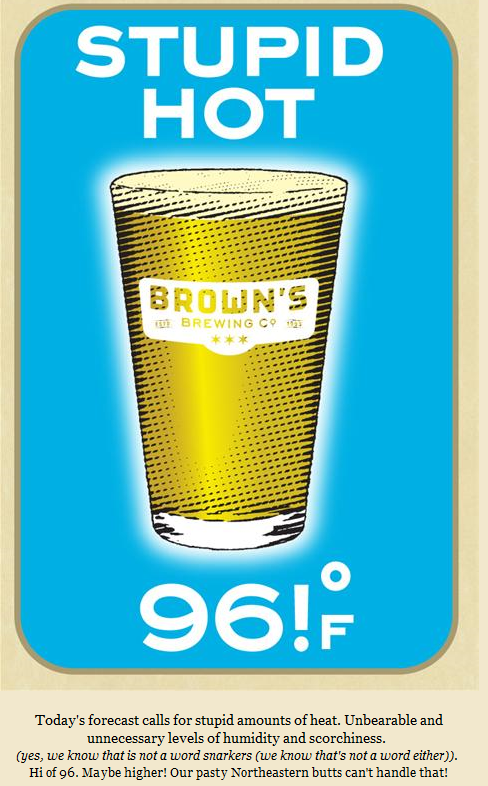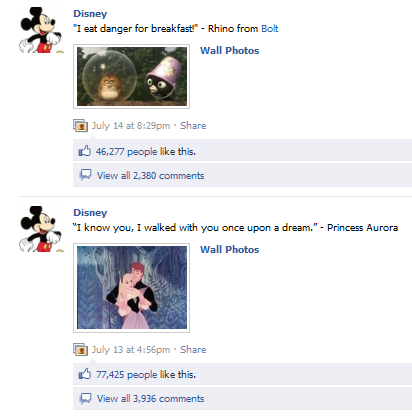 Your customers are going about their day. They’re working out (just kidding!) sitting on their couch watching TV, window shopping at the mall or they’re listening to their radio in the car. Suddenly, a voice interrupts their train of thought. It’s YOUR voice, the voice of your brand. They stop to listen because they recognize you – you’re their friend. The person they bought their car from, where they get their groceries, the band they’ve recently been turned on to. You spend a few seconds marketing talking to them and then you utter those four little words – “Find us on Facebook!” And they do.
Your customers are going about their day. They’re working out (just kidding!) sitting on their couch watching TV, window shopping at the mall or they’re listening to their radio in the car. Suddenly, a voice interrupts their train of thought. It’s YOUR voice, the voice of your brand. They stop to listen because they recognize you – you’re their friend. The person they bought their car from, where they get their groceries, the band they’ve recently been turned on to. You spend a few seconds marketing talking to them and then you utter those four little words – “Find us on Facebook!” And they do.
But then something awful happens.
They begin to hate you. Passionately. You’re screwed.
What happened?
You sent your customers to Facebook and then didn’t give them anything. You focused on the tool, not the offer. Instead of telling your customers WHERE to go (Find us on Facebook! Follow us on FourSquare!), tell them WHY. Better yet, show them why.
It sounds like such an obvious thing, doesn’t it? We know that customers Like and follow brands because they want access to discounts and offers and exclusive content they can’t get anywhere else. They connect because they want something and they expect us to give them something.
But then we don’t.
Why not?
As a consumer, I’m often frustrated by this. A brand or, God forbid, a local restaurant will provide a social call-to-action telling me to “Like them on Facebook”. So I do. But then there’s nothing there waiting for me. There’s no tie-in. There’s no offer. There’s no why, only the what.
Facebook doesn’t work without the why.
But it isn’t just smaller brands, the big brands are just as guilty of it. I was catching up on some Modern Family last night when I saw Pepsi’s Santa Dancing commercial. It’s cute so I’ve embedded it below.
What the YouTube clip doesn’t show is at the end of the commercial there’s a social call to action written in the world’s tiniest font. It says “Like Us On Facebook”.
It doesn’t say why. It doesn’t say what’s there. It just says to do it. And when I get to Facebook, I get nothing from Pepsi. There’s no tie-in. There aren’t exclusive videos of more Santa dancing. I don’t get any secrets about why Santa prefers Pepsi to Coke when he’s on vacation. It’s like that commercial never happened. That experience never happened.
Fragmented social media doesn’t work. You have to give people something.
Depending on how many offline campaigns you’re running, you may not be able to incorporate every one of them into your online media efforts, but there needs to be a brand tie-in somewhere. Something more than just a daily list of random updates.
Disney gives it to me:
They give me the nostalgia for my childhood, the one that will encourage me to purchase their older movies and respark an interest in newer ones.
Bettie’s Cakes gives it to me

They taunt me the location of the truck and the flavors of the day. I can’t tell you how many times someone from Outspoken Media has gotten a hunger for cupcakes and tweeted the truck to come visit us. AND THEN IT DOES!
So does local Troy, NY pub, Browns Brewing, who syncs their email with its Facebook interaction.

The result? I know where I want to go to lunch today to cool down.
How do you avoid being a hated brand on Facebook?
- Build the WHY into the platform: Stop treating social media as a knee jerk reaction, joining to join instead of with a clear purpose. Having a Facebook account is not social media. Understand your own WHY and how will use this platform before choosing a social network to participate in. Once you know your why, create your strategy whether its discounts, promotions, contests, humor, high-levels of engagement whatever. Whatever you choose should line up with your overall brand promise and should be something you can sustain long-term.
- Build the WHY into your marketing: Once you commit to creating a Facebook presence, build it into your other online and offline marketing. Telling your customers to Like you on Facebook also isn’t social media. You need to tell them why to create that interest. If you have exclusive photos from a recent event – say that. If you have an interactive quiz for them to participate in – tell them that. Add these CTAs into your marketing so that your customers know that not only do you have a Facebook page, but there’s a reason for them to visit you and that there’s something to do once they get there. Asking people to Like you on Facebook doesn’t tell them why they should. You need to do that yourself.
- Be social more than you market: You can market on social media. It’s fine. But you need to be social first. Your main objective is to create something that is compelling for your users. You come second.
We hate things that waste our time. Things that look to take from us, without giving us anything in return. If you’re running your Facebook marketing strategy without providing that WHY for your audience, you’re failing. You’re not on Facebook to scoop up fans for sport, asking them to Like you and then never speaking to them again. You’re there to build them, to keep them, and to give them something they can’t get anywhere else. You’re there to build the why into your brand. It’s a snowball effect. But before you can benefit, you have to build your hill.
What are you doing on Facebook to maintain your good status with customers?


